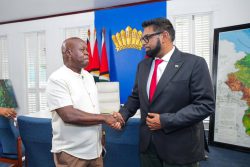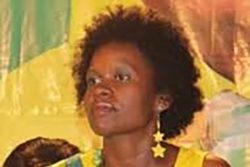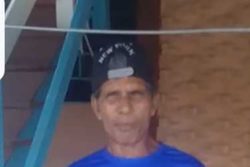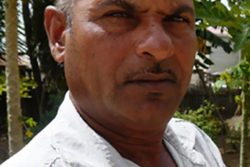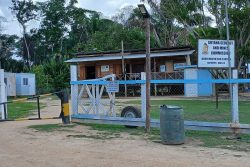The single round swiss-system 2015 Forbes Burnham Memorial Chess Tournament ends this afternoon. For the selected few participants who accumulated the most number of points after five rounds, the ride was a bumpy one. Tournament favourite Anthony Drayton, Candidate Master, was soundly defeated for the first time by a local player since he participated in the 2014 Tromso chess Olympiad. Taffin Khan, a past national chess champion, was forced into accepting draws against his lower-rated opponents. 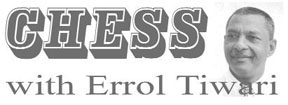 The principal destroyer in this instance, happened to be the unlikely candidate Clement Corlette, a dedicated chess player who has been steadily improving his game. Understandably, Corlette is leading the tournament, with four wins and one draw from his five games.
The principal destroyer in this instance, happened to be the unlikely candidate Clement Corlette, a dedicated chess player who has been steadily improving his game. Understandably, Corlette is leading the tournament, with four wins and one draw from his five games.
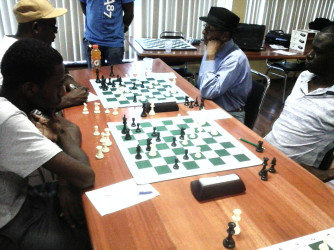
Forty years ago, Guyana was the behemoth of chess in the English-speaking Caribbean. When the Caribbean Chess Championships were held at the Pegasus Hotel in September 1975, only Cuba topped Guyana among the chess nations of the Caribbean. Since that time, Cuba has surged forward and excelled, and continues to do so. In contrast, Guyana has retrogressed rapidly, both in the level of chess activity and in its standard of play. The message may be that we require a new attitude. We cannot have chess officials pretending to be functioning in certain administrative positions when in fact they are hindering those very same positions by not doing the things for which they were elected.
Technology is booming. But are we making use of this technology to improve our chess? Using computers and databases during tournament matches is not allowed. Telephones also are not allowed during tournament games. Therefore, tournament active chess players should prepare the type of the game they have identified to play, and research it assiduously. Of late, top grandmasters have been researching the Berlin Defence of the Spanish Ruy Lopez. This game is a favourite of Vishy Anand.
Whichever game you choose, replaying games by eminent grandmasters should improve your game. While practice is important, so too are study and preparation ‒ knowing the best move and knowing what opponents like to play. There are many ways to play a chess game, particularly in the opening sequences, and some local players may have studied the first 10 or 15 moves of their favourite openings. Undoubtedly, it gives those players an edge. On Wednesday evening I engaged former GDF soldier and national player John Macedo in a game, and lost in a King’s Indian defence as white. Macedo, who resides overseas, followed the latest theory and sprung a surprise on me causing my downfall. Anyway, the local chess fraternity was able to save face when Loris Nathoo took him down in the second game.
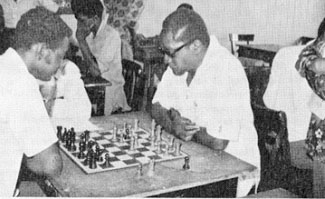
However you look at it, practice and study in chess are vital. Corlette is impressing me in the Burnham Memorial. I wish him luck in today’s games, though in chess there is no such thing as luck. Sadly, chess is rapidly losing its creativity owing to the use of technology. But we have to get with the programme as the popular saying goes, or follow the programme, if we intend to improve the state of chess in Guyana.
